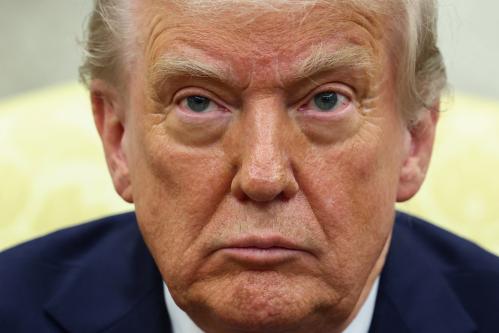To ask whether the Russian economy will rid itself of its “dependence on oil” is to ask whether ideology will trump economics. Many people in Russia—including President Medvedev—seem to believe Russia should de-emphasize the role of oil, gas, and other commodities because they are “primitive.” Relying on them, they argue, is “degrading.” From the economic point of view, this makes no sense. Oil is Russia’s comparative advantage. It is the most competitive part of the economy. Oil and gas are something everyone wants, and Russia has more of them than anyone else.
It is true that the Russian economy is backward, and that oil plays a role in that backwardness. But oil is not the root cause. The causes of Russia’s backwardness lie in its inherited production structure. The physical structure of the real economy (that is, the industries, plants, their location, work forces, equipment, products, and the production chains in which they participate) is predominantly the same as in the Soviet era.
The problem is that it is precisely the oil wealth (the so-called oil rent) that is used to support and perpetuate the inefficient structure. For the sake of social and political stability, a large share of Russia’s oil and gas rents is distributed to the production enterprises that employ the inherited physical and human capital. The production and supply chains in that part of the economy are in effect “rent distribution chains.”
A serious attempt to convert Russia’s economy into something resembling a modern Western economy would require dismantling this rent distribution system. This would be both highly destabilizing, and costly in terms of current welfare. Current efforts for “diversification” do not challenge the rent distribution system. On the contrary, the kinds of investment envisioned in those efforts will preserve and reinforce the rent distribution chains, and hence make Russia more dependent on oil rents.
Even under optimal conditions for investment, any dream of creating a “non-oil” Russia that could perform as well as today’s commodity-based economy is unrealistic. The proportion of GDP that would have to be invested in non-oil sectors is impossibly high. Granted, some new firms, and even entire sectors, may grow on the outside of the oil and gas sectors and the rent distribution chains they support. But the development of the new sectors will be difficult, slow, and costly. Even if successful, the net value they generate will be too small relative to oil and gas to change the overall profile of the economy.
Thus, while it is fashionable to talk of “diversification” of the Russian economy away from oil and gas, this is the least likely outcome for the country’s economic future. If Russia continues on the current course of pseudo-reform (which merely reinforces the old structures), oil and gas rents will remain important because they will be critical to support the inherently inefficient parts of the economy. On the other hand, if Russia were to somehow launch a genuine reform aimed at dismantling the old structures, the only realistic way to sustain success would be to focus on developing the commodity sectors. Russia could obtain higher growth if the oil and gas sectors were truly modern. Those sectors need to be opened to new entrants, with a level playing field for all participants. Most important, oil, gas, and other commodity companies need to be freed from the requirement to participate in the various informal schemes to share their rents with enterprises in the backward sectors inherited from the Soviet system.
Certainly, there are issues with oil. It is a highly volatile source of wealth. But there are ways to hedge those risks. A bigger problem is that oil will eventually lose its special status as an energy source and therefore much of its value. But that time is far off. It will not happen suddenly. In the meantime, sensible policies can deal with the problems. Otherwise, the approach should be to generate the maximum value possible from the oil and protect that value through prudent fiscal policies. Russia should not, can not, and will not significantly reduce the role of oil and gas in its economy in the foreseeable future. It will only harm itself by ill-advised and futile efforts to try.
The Brookings Institution is committed to quality, independence, and impact.
We are supported by a diverse array of funders. In line with our values and policies, each Brookings publication represents the sole views of its author(s).



Commentary
Op-edWill the Russian Economy Rid Itself of Dependence on Oil?
June 16, 2011